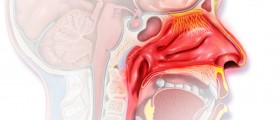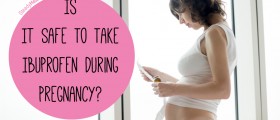
Women suffering from certain allergies may experience worsening of the symptoms during pregnancy. This is, for instance, reported in women suffering from allergic rhinitis. In them the symptoms and signs of the condition may remain the same, improve or worsen. Worsening of the condition is a serious problem because pregnant women may only take certain drugs. This is why doctors pay close attention when treating allergies during pregnancy including allergic rhinitis.
Allergic Medications during Pregnancy - are They Safe?
FDA says that there is not a single drug that can be taken during pregnancy and that is considered completely safe. However, some drugs are allowed while others are strictly forbidden to be prescribed to pregnant women. For this reason, FDA made a classification of drugs regarding whether they are allowed or forbidden during pregnancy.
Pregnancy category 'A' comprises safe medications, allowed to be administered during pregnancy. Out of all allergic medications, not a single one belongs to this group, including asthma medications. Pregnancy category 'B' are drugs which have been tested on animals and shown no damage to fetus, but they have not been tested on humans. Pregnancy category 'C' includes drugs that have caused adverse effects on animal fetuses and are, therefore, forbidden during pregnancy. Finally, pregnancy category 'D' includes medications with a clear risk to the fetus. There is one more category known as pregnancy category 'X' containing medications which are known to cause birth defects.
So before prescribing any of medications against the allergy a pregnant woman is suffering from, the doctor muth check whether the drug is allowed in pregnancy and in what trimester.
Allergic Rhinitis during Pregnancy - Treatment Options
Rhinitis affecting pregnant women may be treated with nasal saline. This is not a drug, is available over-the-counter and may relieve unpleasant symptoms a woman has to deal with. The advantage of nasal saline is that it can be used as often as needed.
As far as antihistamines are concerned, pregnant women are allowed to use older antihistamines such as Chlorpheniramine and tripelennamine, both of which belong to pregnancy category 'B'. There are also newer antihistamines which may be prescribed only if they belong to a safe group of medications.
Decongestants are useful, but should never be prescribed during the first trimester because they are known to cause infant gastroschisis.
Finally, there is cromolyn nasal spray, a drug belonging to pregnancy category 'B' which is efficient if applied before exposure to an allergen or before the onset of symptoms and signs of allergic rhinitis.






_f_280x120.jpg)
-Help-Treat-Your-Cold-Or-Flu_f_280x120.jpg)









Your thoughts on this
Loading...